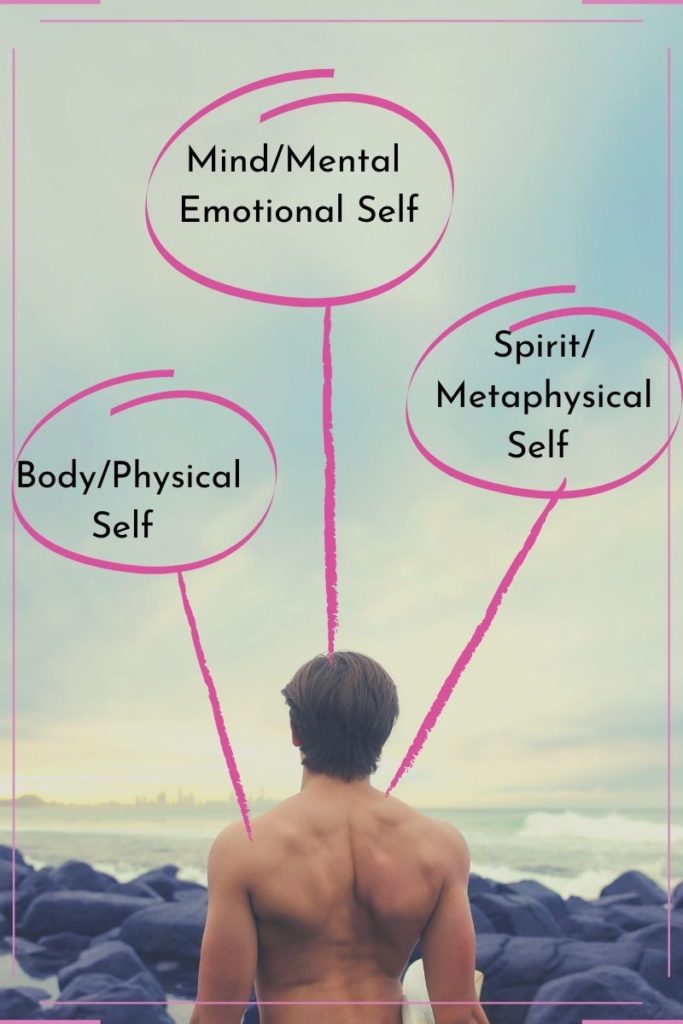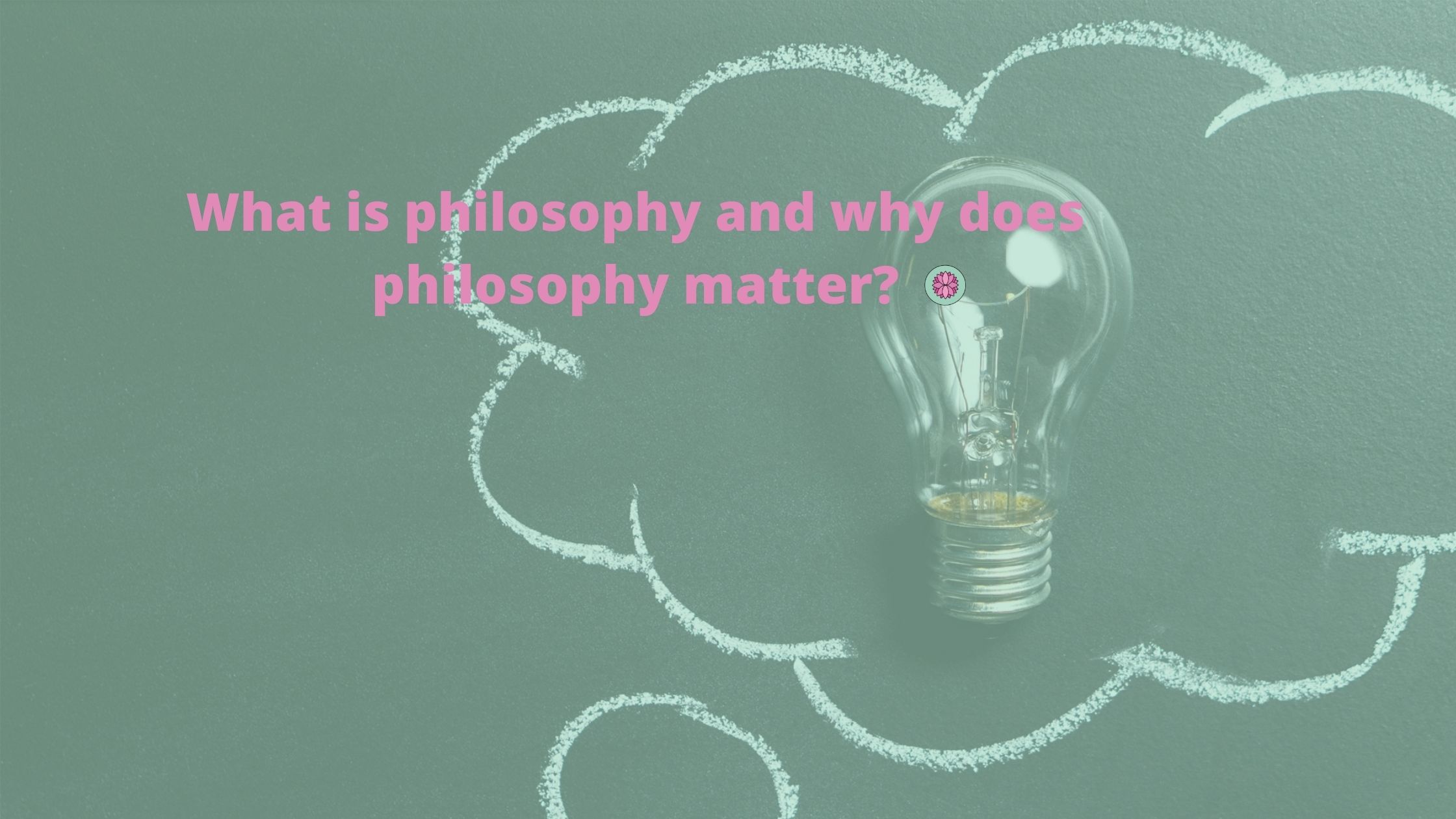It’s been nearly 5 years since I started this blog, a year and a half of working on it, and writing about philosophy. Since then, I’ve avoiding writing this post because I still questioned what philosophy is and why philosophy matters. The world has since become a weird place where socializing has changed and we’re all stuck at home, so this matters more than ever. Today’s post is attempting to answer the question what is philosophy and why does philosophy matter?
What is philosophy…?
The subject of philosophy is defined as inquiring about tough problems and asking questions that generally stump humanity as a whole, and no one can agree on.
Questions like “Why are we here”
“Where did humans come from”
“What is justice”
“How should we collectively govern society”
And so on, the list of possible questions is endless.
Within this, there are different categories of philosophy.
Linguistics, metaphysics, naturalist, Eastern, Ancient, and so many more. The most understood value that philosophy gives us is the ability to argue and format arguments.
I’ve been a philosopher since my grade 11 world religions class that is mandatory within the curriculum at Toronto Catholic District School boards (ironically, a catholic school is teaching the most open minded classes while also arguing that their students and staff must be of catholic faith to work there).
My teacher, a wonderfully cheery Polish woman, taught us the basics of Ancient Greek philosophy – the ideas of Socrates, Plato and Aristotle.
Most of the Western world is founded upon principles written about in the works of these great Stoic philosophers.
School? Comes from Plato’s writing about Socratic ideas.
Science? Comes from Aristotelian ideas.
Spirituality? Comes from Platonic ideas.
At the end of it, philosophy is the chain of ideas, which leads to progress, evolution of thought, and further inquiry through critical thinking, question posing, and argumentation.
This makes it really difficult to singularly place what philosophy is if it shows up as the foundational methods of societal understanding.
Why does philosophy matter?
Whatever I write in this post is bound to be subjective, mainly because it’s coming from my experiential interpretation of philosophy.
Philosophy matters because it gives us a logical framework for understanding everything.
By everything I mean, ourselves, our world, our interactions with the world, our personal relationships, and even beyond into spirituality and our understanding of the universe.
In University, one of the seminars I took discussed in depth the Nicomacian ethics, which is written by Aristotle. In this work Aristotle discusses how the human mind is made up of a three headed beast. The goal of any philosopher is to become the one atop the beast, and control each part of the beast.
Aristotle’s three headed beast is the mind, the body, and the spirit. These three aspects, when untamed can wreak havoc and chaos into a persons life, and upon the world.
The mind, when untamed is self-serving, egotistical, competitive, and immoral.
The Spirit when untamed is self doubting, angry, depressed, and disconnected from everything that is Truth.
The Body when untamed is pure desire, seeking pleasure, food, and an excess of physical material objects to fill the void.

Each of these beasts is located within our human “Self”. That means that when we do the work of understanding our psychology, we are exploring each aspect of these beasts in ourselves, inside our consciousness (often referred to as the mind, mindset, or ego self).
Psychology is a stem of philosophy of mind. It became more socially acceptable as the rise of science came to be in the early 20th century and people began categorizing and attempting to limit and comprehend the beasts that live within us.
Again with the question Why does philosophy matter? It does not, because if philosophy mattered, more people would know what it is. Philosophy does matter in the sense that philosophy itself is the basis of all society. All the theories, ideas and concepts that come to us are coming from philosophical understanding of our own experiences. That’s what philosophy is at the bare bones. To bring it further, philosophy asks us what a good life is. What does it mean to live a moral and ethical life, a “good” life, to one’s own standards, or to the standards of society are very very different things.
Philosophy also matters because it allows the student to see multiple ideas, and argue beyond an opposing position for their own.
Ex: The existence of God has long been debated. It is often debated among the most highly known philosophers to ever exist.
An argument from philosophical understanding would take the form of this:
- argument for your position
- argument against your position
- rebuttal toward opposing argument (explaining again why your position outweighs the objections at hand)
- conclusion based on all arguments given.
This form of argumentation is often taught to those studying law. The reason for this is to see all perspectives and be able to again reiterate why your position is correct. This is often applied in a courtroom while discussing a specific instance of the law.
However, there are limitations within the law itself, and thus philosophy teaches us that not all theories are applied the same way. This creates a gap between the world of theory, and the actual application of a theory. That’s where research and development, and thus psychology and social sciences come in, to prove the theories of those great thinkers.
Remember…
To think philosophically means to see beyond the ideas of others and bring in your own view on things. It’s not regurgitating the opinions of Media, or public figures, but doing your own inquiry, and then comprehending what those around you are saying. That’s when you can begin to translate those ideas into your own and create your philosophical understanding of the world.
There are so many things that philosophy cannot answer, but that philosophers actually bring up and confuse us more with. If you don’t understand what philosophy is, that’s okay.
The definition of philosophy to remember is philo – love and sophia – wisdom. Together, philosophia is a love-wisdom, or a love of wisdom, or a loving wisdom.
Hope you enjoyed reading this!
xo
kristy

Thanks for the interesting reflections, Kristy. On this topic, I always liked the late American philosopher Richard Taylor’s emphasis on the importance of the distinction between knowledge and wisdom: Philosophy may not be very good at giving us knowledge about its deep issues, he liked to point out, but perhaps it’s our best bet for getting wisdom about these issues.
Keep well and keep philosophizing!
Thank you, David for sharing that insight! I have thought about writing the differences between knowledge and wisdom, as the difference between “thinking” and “knowing” exist within our lives. I appreciate the inspiration to keep writing from my philosophical heart. 🙂